Department of History
Looking back at BRICS 2023: The role of external actors in peace and security cooperation in Africa
A week before the 15th Annual BRICS Summit, hosted by South Africa from 22 to 24 August 2023, stakeholders from the Thabo Mbeki African School of Public and International Affairs (TM-School), the African Centre for the Constructive Resolution of Disputes (ACCORD), Unisa’s Department of History, guests and invited attendees were brought together to deliberate on matters related to the role of external actors in the peace and security architecture and reality of Africa.
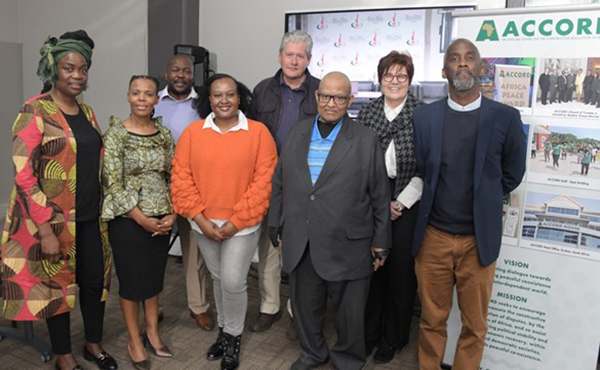
From left: Dr Cecelia Nedziwe (Rhodes University), Dr Sipokazi Madida (Department of History, Unisa), Prof David Mello (TM-School), Siphoesihle Gumede (Department of History, Unisa), Prof Anthonie van Nieuwkerk (TM-School), Ambassador Welile Nhlapo (ACCORD), Prof Charlotte Du Toit (TM-School) and Prof Kwesi KDLS Prah (Department of History, Unisa)
Furthermore, they sought to deliberate on how the established development (that is BRICS) affected the trajectory of economies and security of polities globally. This impact was discussed in retrospect, with reference to past events, catalytic individuals and significant shifts in the geopolitical global space. It became evident through discussions and debates that such engagements, with the participation of academics, civil society and political stakeholders, have set clear objectives for security cooperation in Africa that are defined and evaluated.
The importance of actively engaging delegates and the public on factors that affect Africa as far as this bloc is concerned remains a priority. The symposium discussion proposed that academics and members of civil society should engage in transdisciplinary engagement that articulates strategy and forward-thinking within the spheres of peace and security. As South Africa appears to be the least dominant member within BRICS in terms of capacity and trade, but at the same time being the only country in the African sub-continent from before the expansion, it is imperative to articulate the involvement of Africa, insofar as its position in global politics is concerned.
More countries have recently joined this bloc, and thus the famous acronym has been expanded to BRICS+, with other African countries such as Egypt and Ethiopia coming to the fore. The first day of the symposium began with discussions and an overview of developments and changes from a unipolar to a multipolar world, led by Ambassador Welile Nhlapo. The last day of the symposium included a robust discussion of Chinese Perspectives on Peace Diplomacy in Africa, with the first discussion being on Chinese views on China-Africa Security Cooperation, led by Dr LI Wentao (Executive Director at the Institute of African Studies, China Institutes of Contemporary International Relations).
This discussion was followed by a conversation led by Rt Ambassador SHU Zhan (Director for the African Studies Centre at the China Foundation for International Studies) on the topic: Personal understanding of the Global Security Initiative by China. Finally, the closing segment on Pan-African Perspectives on Peace Diplomacy in Africa led by Ambassador Nhlapo, Dr Cecelia Nedziwe and Dr Philani Mthembu presented a counter-hegemonic narrative on the topic.
Click on the links below to view recordings of the sessions.
- 14 August: https://www.youtube.com/live/ujMHpw3b0EE?si=Grnl5tKscbmcu9zm
- 15 August: https://www.youtube.com/live/uyoQNLxGCnY?si=vznWXHEFORmNXMjz
* By Siphoesihle Gumede, Lecturer, Department of History, College of Human Sciences
Publish date: 2024-03-12 00:00:00.0


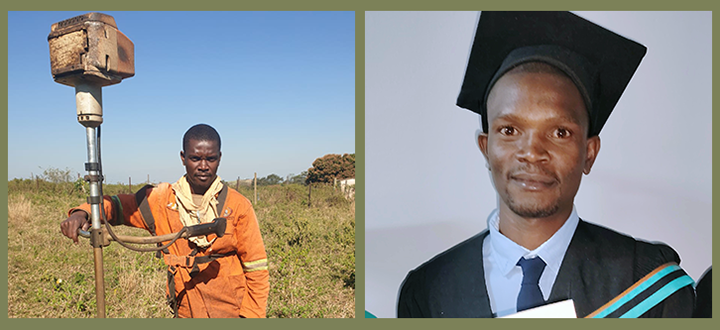 Cutting grass by day, pursuing Unisa studies by night
Cutting grass by day, pursuing Unisa studies by night
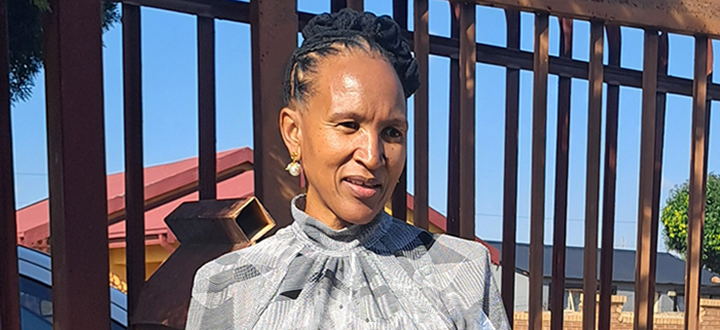 Koma e wetse: When tradition meets the harsh realities of modern livelihoods
Koma e wetse: When tradition meets the harsh realities of modern livelihoods
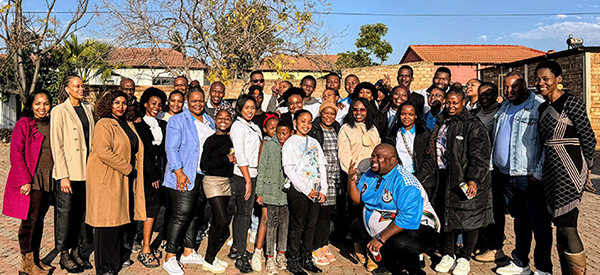 Imbizo inspires youth
Imbizo inspires youth
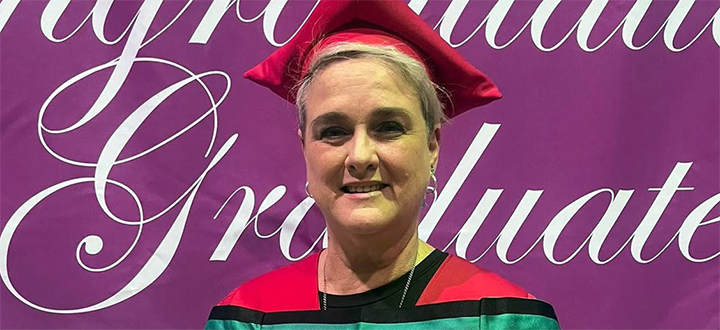 Shedding light on the well-being of ODeL facilitators
Shedding light on the well-being of ODeL facilitators
 A giant leap for student success and retention
A giant leap for student success and retention